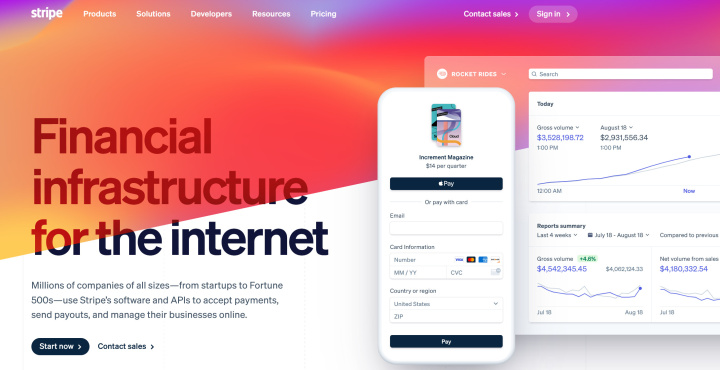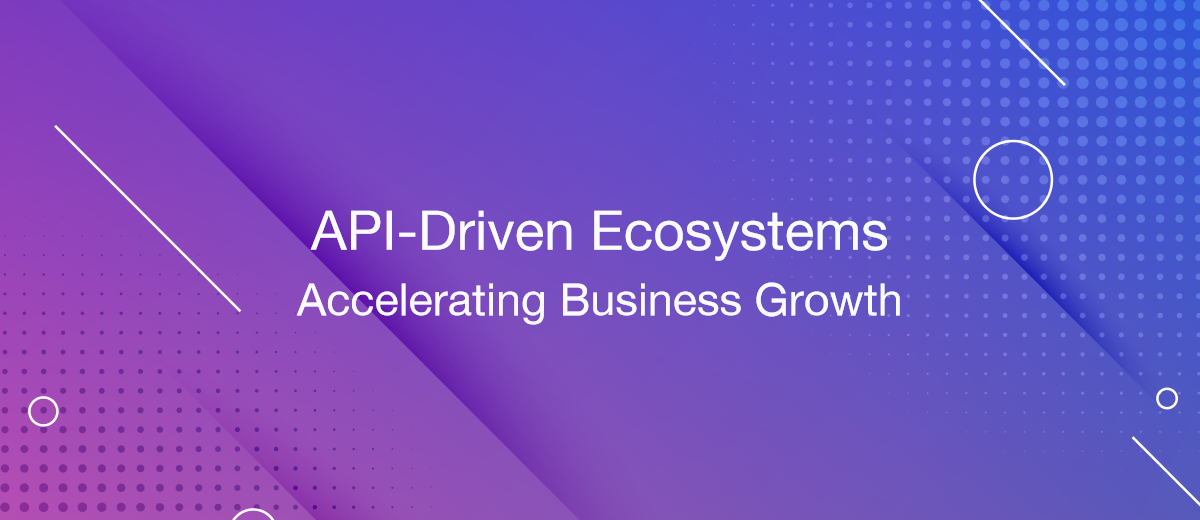API-Driven Ecosystems: Accelerating Business Growth Through Innovative Integrations
Following the dot-com bubble and the financial crisis of 2008, companies have experienced exponential growth over the past two decades. Following that trend, API innovation and integration have hit all-time levels of adoption and are now a foundational part of most modern businesses. The ability to innovate and adapt to API-driven ecosystems is paramount in today’s technology-focused business landscape.
Amazon is one of the five trillion-dollar companies in the world, and for two decades, it has accelerated its growth by leveraging API-driven innovation. In 2002, Jeff Bezos released what became known as “The API Mandate,” with a list of requirements for all Amazon teams to focus on API integration and, from that point forward, to expose and share all data and functionality through service interfaces.
All teams were also required to communicate with each other solely through these interfaces, with all other forms of communication banned; breaking this directive would result in termination. Although it may not be Amazon’s current strategy as a trillion-dollar company, its past API-focused approach remains a key building block for its rapid success.
The fast-paced business landscape is only continuing to leverage APIs to increase scale. This article will be a brief introduction to APIs and the fundamental benefits of this technology. We will also break down three successful companies that have leveraged API innovation, tech-focused and traditional.
Understanding the Basics of API-Driven Ecosystems
APIs are sets of protocols and tools that enable software applications and integrations to communicate and connect the core business with various third-party services. This interlinking allows businesses to create a web of reliable, independent services, working in tandem to propel growth, efficiency, and innovation.

A popular example of interacting seamlessly with APIs can be seen when using Uber or Amazon. These companies utilize their existing networks to fulfill your needs with a host of API-integrated services, from real-time location tracking to payment processing and customer feedback.
API-driven ecosystems are behind many of the most successful companies worldwide, although the complexities of these ecosystems are often overlooked. Within the ecosystem, every connection and interaction is created cohesively and governed by the APIs as a unique dynamic, interconnected network.
A key component of API software is the ability for businesses to communicate with users, customers, and clients seamlessly. Through APIs, businesses can leverage user insights to develop personalized, targeted messaging to ensure engagement. Often, this is compounded through an omnichannel integration strategy across diverse platforms and devices to guarantee consistent communication throughout the user experience.
The recent wave of AI chatbots and virtual assistants is rapidly being deployed and leveraged across many industries, with its ease of integration and immediate impact enhancing customer support and addressing user queries efficiently. This, coupled with the robust security measures and laws governing API software companies and the intuitive safety of use, rapidly increases the acceptance and adoption of APIs at scale.
What Are the Benefits of Creating an API-Driven Ecosystem?
Businesses that fully embrace API-driven ecosystems can unlock a plethora of sustainable and scalable benefits, with the key being efficiency. Additionally, companies can more easily automate workflows, as well as improve communication between systems, and reduce manual work and human error. Efficiency has become the word of the year, according to Mark Zuckerberg, as API infrastructure enables quicker product/service releases, increased productivity, and unparalleled scalability.
API software empowers businesses to establish effective communication across multiple channels and platforms, generating customer support and long-term success. This seamless communication aids businesses’ flexibility to expand, adapt, and modify products and services to cater in real time to customers based on market trends and customer demands.
In API-driven ecosystems, the importance of collaboration cannot be overlooked. Collaboration is a facet of growth that drives cooperation and innovation. This gives all parties a well-rounded approach to shared growth, improved solutions, and access to new markets. APIs enable businesses to seamlessly communicate with developers, partners, competitors, and their users, allowing them to scale quickly and efficiently.
3 Real-World Success Stories of Leveraging API for Growth
The following are three examples of companies in specific sectors utilizing APIs to increase communication and customer experience. They are carving paths of success in the rapidly changing digital world by leveraging the unique flexibility, scalability, and collaborative advantages that APIs offer.
Redefining Food Delivery in the Digital Age
APIs have revolutionized the food delivery sector, fathering innovative giants like DoorDash and GrubHub. These companies employ a host of APIs to connect real-time data across restaurants, delivery drivers, and customers. Streamlining operations is a key benefit of APIs, from updating menus, tracking orders, accepting payments, and customer support.
The ecosystem they have built by leveraging APIs creates fluid communication across all channels from start to finish and the ability to create adjustments in real time. Both companies can leverage APIs to increase customer satisfaction, offer efficient, timely delivery, and provide an all-encompassing experience from restaurant selection to tipping your driver. APIs have proven they are the cornerstone of many businesses and are vital in transforming food delivery everywhere.
Specialized Software Supporting Veterinary Services
In the veterinary and pet care industry, APIs have become a game changer. APIs are responsible for increasing businesses’ abilities to provide customer-focused care in the booming roughly $80 billion veterinary market.
Organizations in this space, like Weave, offer online booking services for various veterinary practices. They also leverage APIs to connect these companies to various practice management systems and improve internal connectivity. This ultimately creates continuity in scheduling appointments, managing important records, and creating superior customer service.
Weave’s operations rely on its powerful API-driven ecosystem driving growth in the industry, increasing personalized customer experience, and creating high-level operational efficiency.
Revolutionizing Financial Services With Companies Like Stripe
APIs have allowed innovative companies to redefine an entire industry, and few companies have utilized and leveraged APIs as well as Stripe. Stripe focused on delivering APIs that provided the most valuable and useful approach. Similar to Amazon, this focus on APIs proved successful at scale. Currently, Stripe is nearing 20% of the online payments market, and many value the company at over $100 billion.

Stripe’s API-driven approach allows businesses to incorporate their most complex financial services into their operations. Stripe boasts a wide range of APIs that allow businesses to accept payments from customers worldwide in multiple currencies. It provides several other APIs, from fraud detection and eCommerce integration to subscription-based APIs and various other customer management systems and tools. This API-driven ecosystem has improved operational efficiency, streamlined workflows, and enhanced customer service.
You can set up integrations for Stripe yourself using our service. The whole process is carried out in no-code mode and does not require special skills or knowledge.
Final Thoughts on API-Driven Innovation
API-driven ecosystems have evolved from being a trend to becoming a fundamental strategy for businesses, requiring continuous adaptation to socioeconomic trends. Many speculate that businesses not adapting to API-driven ecosystems risk being outpaced, out-optimized, and outperformed by those embracing these technologies.
The concept of efficiency isn’t new, however; its importance in today’s economy is heavier than ever, especially with the influx of AI and blockchain technologies. Earlier this year, Mark Zuckerberg launched a campaign within Meta and proclaimed ‘the year of efficiency’ during an earnings call in 2023. APIs unite core business concepts, creating a mutually beneficial, highly formidable business ecosystem focused on efficiency, security, scalability, and seamless communication.
Apix-Drive is a universal tool that will quickly streamline any workflow, freeing you from routine and possible financial losses. Try ApiX-Drive in action and see how useful it is for you personally. In the meantime, when you are setting up connections between systems, think about where you are investing your free time, because now you will have much more of it.

